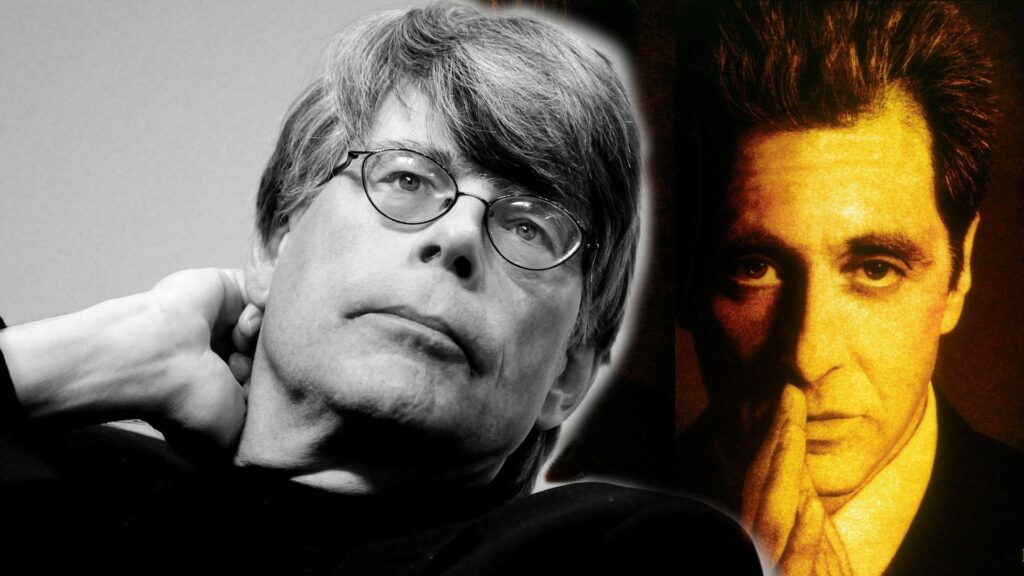Stephen King’s candid discontent with Stanley Kubrick’s cinematic rendition of his novel “The Shining” has been a topic of intense discussion and debate among film and literature aficionados for decades. The friction between King’s supernatural inclinations and Kubrick’s psychological approach offers a fascinating glimpse into the complexities of adapting literature into film.
The Heart of the Disagreement
At the crux of their disagreement was a fundamental difference in how each viewed the forces of good and evil. King, a staunch believer in the palpable presence of supernatural evil, envisioned “The Shining” as a tale of a man battling against external dark forces. Conversely, Kubrick, a skeptic of such black-and-white moral demarcations, molded the narrative into a chilling exploration of human psychosis, devoid of any supernatural undertones.
Jack Torrance, memorably portrayed by Jack Nicholson, is depicted in the film as inherently unstable, his descent into madness almost a foregone conclusion. This portrayal starkly contrasts with King’s character, who is depicted as an essentially good man corrupted by malevolent external forces. This difference in character arc led King to criticize the film for lacking a genuine tragedy, as he felt the film’s Jack was doomed from the start, never truly grappling with his sanity.
A Clash of Philosophical Beliefs
In an interview, King revealed a telling exchange with Kubrick that encapsulated their ideological divide. When discussing the nature of ghost stories, Kubrick suggested that such tales are inherently optimistic, hinting at life beyond death. King’s response was poignant, querying whether Kubrick considered the existence of hell as similarly optimistic. Kubrick’s disbelief in hell underscored his fundamentally different approach to the story, one not rooted in the traditional battle between good and evil but rather in the existential dread of human reality.
King, who had a more traditional belief system, asked him if he thought hell was optimistic. After a long silence, Kubrick replied with a change in tone, “I don’t believe in hell.”
The Cinematic Outcome and Legacy
Despite the initial mixed reviews and the controversial reception of Kubrick’s adaptation, which even earned him a Razzie nomination for worst director, the film has grown in stature over the years. Today, it is often hailed as one of the greatest psychological horror films ever made, a testament to Kubrick’s masterful direction and unsettling ambiance.
King’s Respect for Kubrick’s Craft
Despite their differences, King held a deep respect for Kubrick’s intellectual prowess and cinematic genius. In various interviews, King has expressed his admiration for other Kubrick films, such as “Dr. Strangelove” and “Paths of Glory,” highlighting the director’s capacity to create profoundly impactful cinema. However, he also noted Kubrick’s somewhat detached personal demeanor, describing him as an “insular man” who, despite being engaging in conversation, seemed somewhat removed.
But I met Kubrick and there’s no question he’s a terrifically smart guy. He’s made some of the movies that mean a lot to me, Dr. Strangelove, for one and Paths of Glory for another.
In response to his dissatisfaction with Kubrick’s adaptation, King spearheaded a television miniseries of “The Shining” in 1997, which stayed truer to his original vision, emphasizing the struggle between good and evil, and providing the tragic arc he felt was essential to the story.
Conclusion
The enduring intrigue of the King-Kubrick controversy lies not just in their differing visions for “The Shining,” but in what it reveals about the artistic process. It highlights the unique challenges and creative liberties involved in adapting literature into film, where the essence of a story can be transformed by the lens through which it is interpreted. This clash of creative titans remains a poignant reminder of the subjective nature of art and the diverse ways stories can be told and understood.
